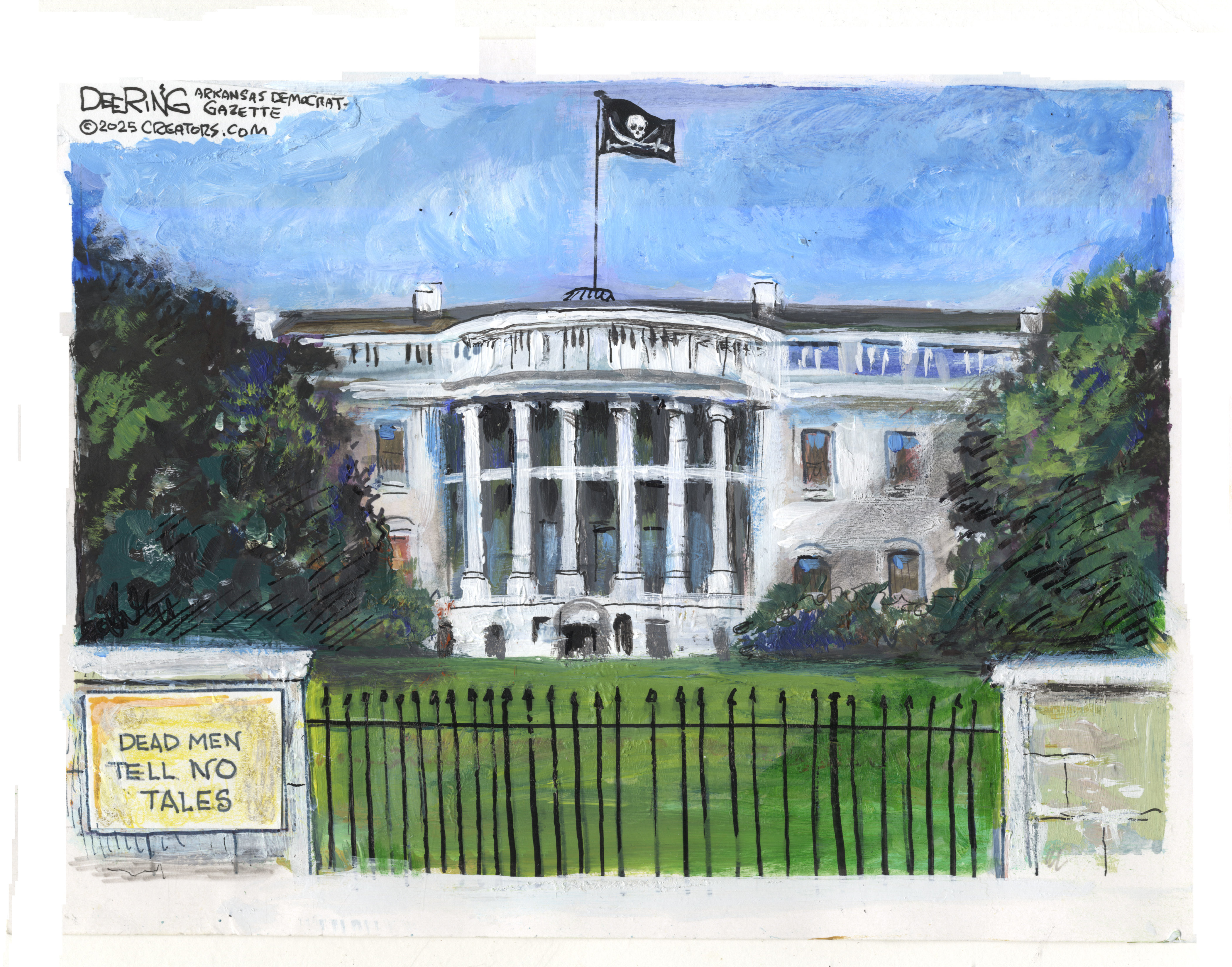How they see us: Joining the fight against global warming
The Americans have finally started to feel the heat, said Damien Roustel in France’s L’Humanité. At the global conference on climate change in Bali recently, the U.S. made an “astonishing about-face.” After two weeks of stonewalling the negotiations, refu
The Americans have finally started to feel the heat, said Damien Roustel in France’s L’Humanité. At the global conference on climate change in Bali recently, the U.S. made an “astonishing about-face.” After two weeks of stonewalling the negotiations, refusing to commit to any cuts in greenhouse gases unless they applied equally to developed and developing countries, the U.S. delegation ultimately agreed to a compromise. The U.S. still refuses to include a binding commitment to cut its greenhouse gas emissions by at least 25 percent. But it did agree to commit to unspecified “deep cuts” in emissions. More important, it will give technological and financial aid to developing countries to help them “grow green.”
It took the pressure of the entire world to puncture America’s intransigence, said Caroline De Malet in France’s Le Figaro. Speech after speech by delegates from developing nations lambasted the U.S. for its selfishness in demanding that China and India make concessions before the U.S.—the world’s biggest polluter—would even consider making any. Some speeches were downright shaming, as when the Papua New Guinea delegate shouted, “If you don’t want to take the lead, at least don’t get in our way!” The turning point came when the U.S. delegate, Paula Dobriansky, took the floor to the boos of the world community. It then became obvious that the U.S. “would be held responsible for the failure of the summit” unless it made some real concessions. Shortly thereafter, Dobriansky did just that.
Still, this isn’t much of a milestone, said Jonathan Leake in Britain’s Sunday Times. The Bali agreement has been hailed as historic “mainly because America signed up to it.” But America can still scuttle it. The original draft of the Kyoto accord, for example, mandated deep cuts in six greenhouse gases, but the final version, adopted after years of negotiations, mandated smaller cuts, in only three gases—and even those targets went unmet. This time around, we’re starting with a draft accord that is pretty much toothless, and it will probably get weaker, not tougher, over the next two years.
The Week
Escape your echo chamber. Get the facts behind the news, plus analysis from multiple perspectives.

Sign up for The Week's Free Newsletters
From our morning news briefing to a weekly Good News Newsletter, get the best of The Week delivered directly to your inbox.
From our morning news briefing to a weekly Good News Newsletter, get the best of The Week delivered directly to your inbox.
There’s still hope, said Konrad Mrusek in Germany’s Frankfurter Allgemeine Zeitung. There will be a new U.S. president before the final accord is signed in Copenhagen in 2009. “If a Democrat wins the presidency, the accord could well be renegotiated.” And even if we get another Republican in the White House, the political climate has definitively shifted. Even President Bush has realized that America cannot remain isolated from the rest of the world on the most important challenge facing the planet.
Don’t be so sure, said John Vidal in Britain’s Guardian. The U.S. has already begun backtracking. Bush’s press secretary, Dana Perino, said the U.S. still has “serious concerns” that will have to be addressed during the negotiations over the next two years. She pointed out that while the U.S. emits more gases per capita than China, that’s only because of the much smaller American population; in total tons of emissions, the two countries are nearly the same. And the Democrats aren’t so different from the Republicans, said George Monbiot, also in the Guardian. Both American parties are beholden to the corporate interests that have a stake in the polluted status quo. In the last decade, coal, oil, gas, logging, and agribusiness have given $418 million to federal politicians in the U.S., while automobile companies have given $355 million. Yes, “the big polluters favor the Republicans, but most of them also fund Democrats.”
A free daily email with the biggest news stories of the day – and the best features from TheWeek.com
-
 6 lovely barn homes
6 lovely barn homesFeature Featuring a New Jersey homestead on 63 acres and California property with a silo watchtower
-
 Film reviews: ‘Marty Supreme’ and ‘Is This Thing On?’
Film reviews: ‘Marty Supreme’ and ‘Is This Thing On?’Feature A born grifter chases his table tennis dreams and a dad turns to stand-up to fight off heartbreak
-
 Political cartoons for December 14
Political cartoons for December 14Cartoons Sunday's political cartoons include a new White House flag, Venezuela negotiations, and more
-
No equipment for Afghanistan
feature The U.S. has reportedly decided to hand over to Pakistan some $7 billion worth of American military hardware currently in Afghanistan.
-
How they see us: Crudely insulting our allies
feature Well, at least we know now what the Americans really think of us.
-
Spied-upon Germans are not mollified
feature In the wake of revelations last year about the NSA's spying activities, relations between Germany and the U.S. have been at an all-time low.
-
Is a deal with the U.S. in Iran’s interest?
feature The “unprecedented enthusiasm” of Western diplomats after the talks in Geneva suggests they received unexpected concessions from the Iranians.
-
How they see us: Sowing chaos in Libya
feature The kidnapping of Abu Anas al-Libi is an outrage committed against Libyan sovereignty—and it will have repercussions.
-
Europe is complicit in spying
feature It’s not just the Americans who have developed a gigantic spying apparatus.
-
Protecting Snowden
feature American whistle-blower Edward Snowden has proved a master spy with his “meticulously timed operation.”
-
Listening in on Europeans
feature Europeans are apoplectic over the U.S. National Security Agency's massive PRISM surveillance program.